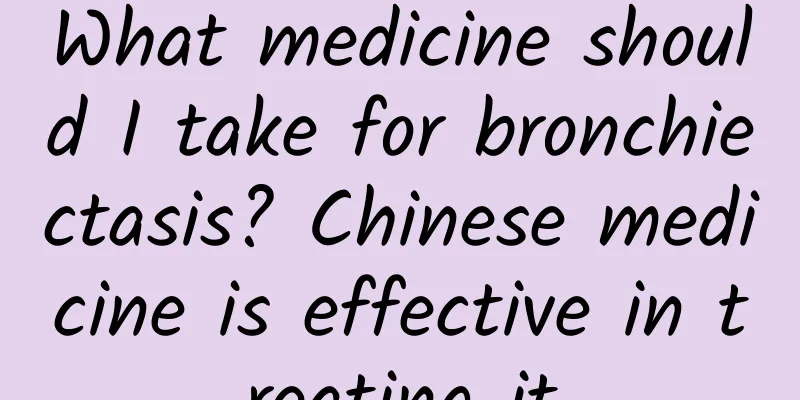Moxibustion points for fatty liver

|
The disease of fatty liver mainly occurs in some middle-aged and elderly people. If it occurs, you should insist on treatment, so that your disease will not occur again and again. In addition, you can also try to use some moxibustion treatment methods. In fact, moxibustion acupoints can have a good effect of relaxing muscles and activating blood circulation, and it has an auxiliary therapeutic effect on the disease. 1. General treatment (1) Find out the cause and take targeted measures. Those who drink heavily for a long time should quit drinking. People with overnutrition and obesity should strictly control their diet to restore their weight to normal. Diabetic patients with fatty liver should actively and effectively control blood sugar. Patients with malnutrition-induced fatty liver should increase their nutrition appropriately, especially their intake of protein and vitamins. In short, removing the cause is helpful to cure fatty liver. (2) Adjust the dietary structure and advocate a high-protein, high-vitamin, low-sugar, and low-fat diet. Do not eat or eat less animal fat and sweets (including sugary drinks). Eat more green vegetables, fruits and foods rich in fiber, as well as high-protein lean meat, river fish, soy products, etc. Do not eat snacks or have extra meals before going to bed. (3) Appropriately increase exercise to promote the consumption of body fat. Aerobic exercises should be mainly chosen, such as jogging, brisk walking, cycling, going up and down stairs, playing badminton, skipping rope and swimming, etc. The pulse rate during exercise should be 100 to 160 beats per minute, lasting for 20 to 30 minutes, and the feeling of fatigue after exercise should disappear within 20 minutes. (4) Appropriate selenium supplementation can make the activity of glutathione peroxidase in the liver reach normal levels, which plays a good role in nourishing and protecting the liver. 2. Medication So far, there is no specific drug to prevent and treat fatty liver. Western medicine often uses drugs that protect liver cells, lipid-lowering drugs and antioxidants, such as vitamins B, C, E, lecithin, ursodeoxycholic acid, silymarin, inosine, coenzyme A, reduced glutathione, taurine, botulinum toxin orotate, and certain lipid-lowering drugs. It can also be treated with traditional Chinese medicine such as Salvia miltiorrhiza, Crataegus pinnatifida, Cassia seed, Alisma orientalis, Chaihu decoction, and Wuling powder. Fatty liver is generally divided into two categories: alcoholic fatty liver and non-alcoholic fatty liver. Depending on the extent of fatty degeneration in the liver, it can be divided into mild, moderate and severe types. Usually, when the fat content exceeds 5% to 10% of the liver weight, it is considered mild fatty liver, when it exceeds 10% to 25%, it is moderate fatty liver, and when it exceeds 25%, it is severe fatty liver. The clinical manifestations of fatty liver are diverse. Mild fatty liver often has no clinical symptoms and is often discovered accidentally during physical examinations. Fatigue is the most common symptom in patients with fatty liver, but it has no correlation with the severity of histological damage. Moderate to severe fatty liver has symptoms similar to those of chronic hepatitis, including loss of appetite, fatigue, nausea, vomiting, dull pain in the liver area or right upper abdomen, etc. When there is too much fat deposited in the liver, the liver capsule may expand and the liver ligaments may be stretched, causing severe pain or tenderness in the right upper abdomen, fever, and increased white blood cell count, which may be misdiagnosed as acute abdomen and require laparotomy. In addition, patients with fatty liver often have changes in peripheral neuritis such as glossitis, angular cheilitis, skin ecchymosis, numbness of the limbs, and abnormal sensation in the limbs. A small number of patients may also experience gastrointestinal bleeding, gingival bleeding, epistaxis, etc. Patients with severe fatty liver may have ascites, lower limb edema, electrolyte imbalance such as hyponatremia and hypokalemia, etc. The manifestations of fatty liver are diverse. When diagnosis is difficult, a liver biopsy can be performed to confirm the diagnosis. |
<<: What medicinal materials are used in medicinal pigeon
>>: The benefits of daily moxibustion on the abdomen
Recommend
What are the six steps to prevent pressure sores?
In daily life, pressure sores are not unfamiliar ...
Lower abdominal distension and pain with yellow leucorrhea
Abdominal pain is a very common symptom for women...
7 symptoms in men indicate a decline in health
Men's health is relatively easily affected du...
7 questions to test how long your body can last?
How old is he? Don't think that you can know ...
There is a tumor in my stomach
When it comes to abdominal tumors, people may jus...
Premonitions of myocardial infarction
Myocardial infarction is a very dangerous acute b...
What are the symptoms of babies getting angry after drinking milk powder?
When parents feed their babies milk powder, somet...
What to do if your spleen and stomach are weak
There are many common diseases, which are very ha...
The efficacy and usage of Mihu flower
Huoshan Dendrobium is a perennial woody plant of ...
Drugs for macular degeneration
There are many types of drugs for treating macula...
What ointment to use for children's peeling hands
Since children do not have clear judgment of obje...
Learn these tricks to easily deal with gastric mucosal damage
For people nowadays, the most common disease is p...
How to treat cervical bulge
There is a big lump in the cervical spine area, w...
Is bipolar disorder a mental illness?
According to neurological experts, manic-depressi...
Treatment of pleurisy
Xiali's weight has been decreasing day by day...









